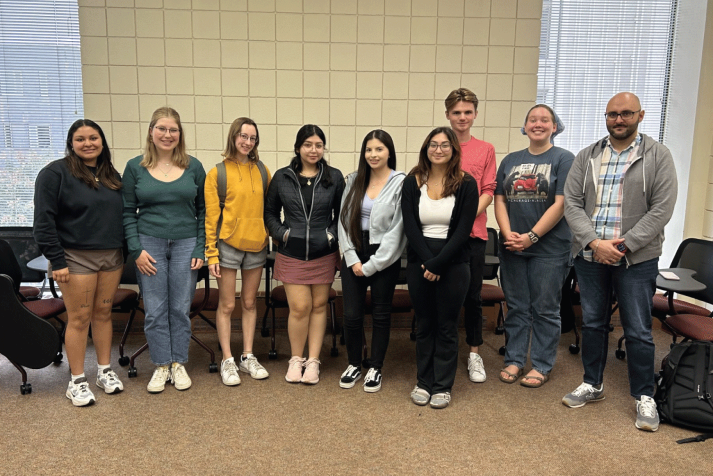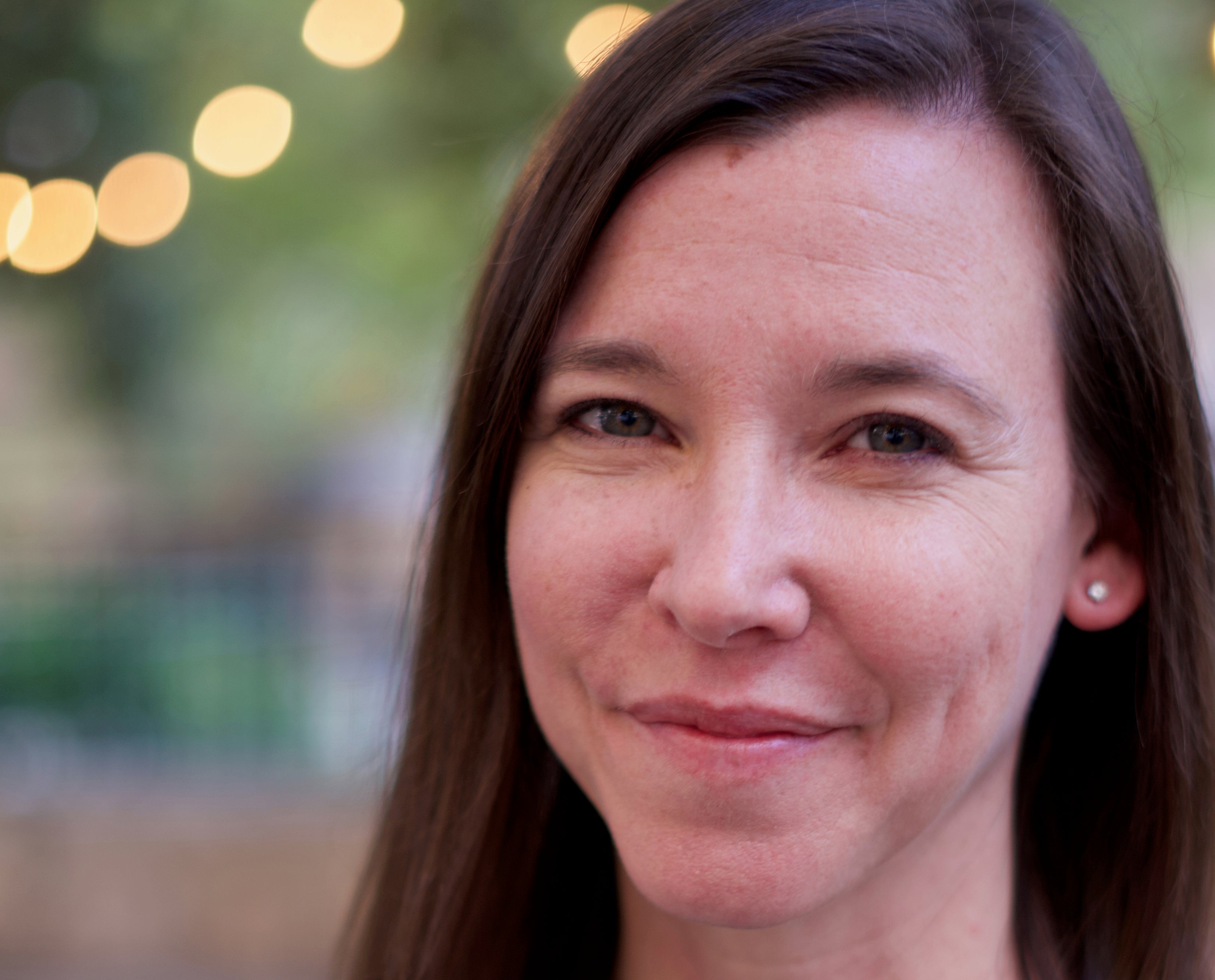Building Resilience — Learning to Bend, Not Break

Resilience refers to the ability to respond to, endure and transcend the difficult challenges our lives deliver. Like trees that evolve to adapt to harsh environments, experts say we can learn to bend instead of break by adopting and consistently employing practices that nourish resilience even while withstanding trying transitions and circumstances.
Across a three-year term as faculty fellow of mentoring initiatives and six years as faculty director of the First-Year Seminar program, Teaching Professor of Writing Heather Martin has helped students and faculty to develop resilience. We asked Martin, who earned a PhD in English and Creative Writing in the College of Arts, Humanities & Social Sciences (CAHSS) in 2011, for her thoughts on weathering storms — literal and figurative, personal and collective — in the new school year.
What is resilience and why is it important?
Resilience suggests an ability to weather something. It could be a difficult boss, class or illness; or something more personally significant like an empty nest, retirement, divorce or the death of a loved one. Bruce Feiler has a great book called Life Is in the Transitions about managing a core feature of the life journey: transitions. I use it in my First-Year Seminar (FSEM) classes. Feiler argues that the concept of a linear life — where life proceeds through a predictable set of stages — is dead. Today’s non-linear life involves more life transitions than ever before, and life transitions are something we can and should learn to manage. Managing transitions is critical to developing resilience.
Is developing resilience something you have focused on in your mentoring roles?
Yes. I work closely with first-year students and the faculty who welcome them to DU. Every incoming student takes a first-year seminar taught by one of 85 faculty from across disciplines. FSEM faculty support student resilience during the challenging transition to college. That means equipping students with resources and support. But many of these same tools and tactics also serve faculty. Both students and faculty benefit when they think through how they’re experiencing a challenge and devise a plan to manage it.
What steps can we take to develop and maintain resilience?
As a writing professor, I’m always encouraging people to use writing to reflect on past challenges. How did you get through the last hard thing? The first thing you learn with this kind of reflection is that you are already strong and resilient. For example, faculty will be teaching during a contentious election season this fall. Personally, I find this incredibly stressful. So, I’ve been reflecting on how I managed it last time. What helped me most? Sharing my worries with colleagues and allocating class time to discuss the impact of political climate on our community got me through.
For someone handling grief, it can be helpful to recall another time when you experienced grief. What helped and what didn’t? Maybe you leaned on friends, spent more time outdoors or practiced a specific form of self-care. Writing is a powerful way both to help us remember and provide a record to refer to in the future. Select from your own tools for resilience to manage the current circumstance.
What else works well?
Alignment with personal beliefs and values. Sometimes we’re stuck in patterns that aren’t serving us. It can help to step back and consider who we want to be professionally or personally. If I’m feeling persistently burned out, maybe it’s because my project or role is misaligned with my values or professional goals. Sometimes resilience is about advancing changes that will serve you in the long-term.
We’re living in an age of 24-hour news cycles in which we can feel overwhelmed by information and misinformation. Many of us are also experiencing turmoil in our personal lives and relationships. Do you have any specific advice to add?
For me, it’s important to focus on “perspective taking.” To ask, what is important in my life? While both global politics and a challenge with my teenage daughter provoke similar feelings of worry and despair in my body, they are not the same.
I cannot tune out my relationship with my daughters, but I sure can change my media diet. It’s helpful to prioritize the things that are directly and immediately relevant to my life and to de-emphasize the things that are not. Disengaging from work stress or global politics for a few days will have no impact. Staying connected to my daughters is my top priority.
How can we support each other in developing and nourishing resilience, thereby strengthening our collective resilience?
As a DU community, it’s about connection — building meaningful, authentic and sometimes vulnerable relationships with each other. These connections are cultivated through sharing. I try to model this for students. By disclosing a challenge I'm having to students, it reveals my humanity and my imperfection. It can be hard to do this in an academic setting, but I do think there’s room within healthy faculty-student boundaries to talk about our lived experiences and share struggles and challenges.
Listening and presence are also vital for community resilience. Finding commonality in our shared experiences can be deeply restorative. Likewise, learning from and understanding different lived experiences fosters our own growth and compassion.
Heather Martin's Tips for Strengthening Resilience
Write and Reflect
Write for a few minutes on how you managed previous life challenges — what helped, what didn’t and what you’d like to do differently this time. A reflective practice builds resilience, while providing an evolving record to rely on when needed.
Gain Perspective
Especially in stressful situations, step back and sort out what we can and can't control, prioritize the essential responsibilities in our academic, professional and personal lives and let the rest go, at least for now. Also, it’s essential to take breaks — walks, hikes, checking in with friends — and unplug from news and social media to prioritize what is most important.
Consider Alignment
Assess current projects and roles for alignment with values and professional goals. Review those values and goals to see whether this job or role, for example, aligns with them. If not, create a plan for finding opportunities that provide a better fit.
Share and Listen
Take time to be vulnerable and share your struggles. It encourages others to do the same. Sharing builds personal resilience and strengthens community resilience, as we grow and adapt to transitions and challenges together.





